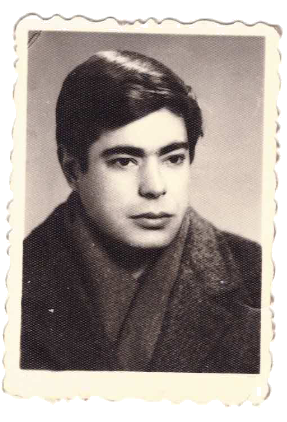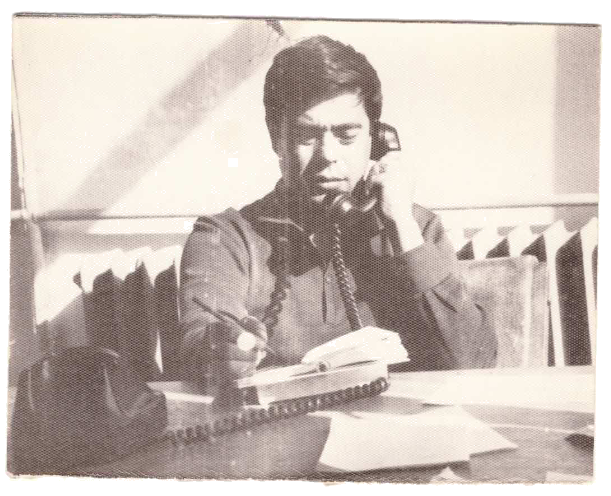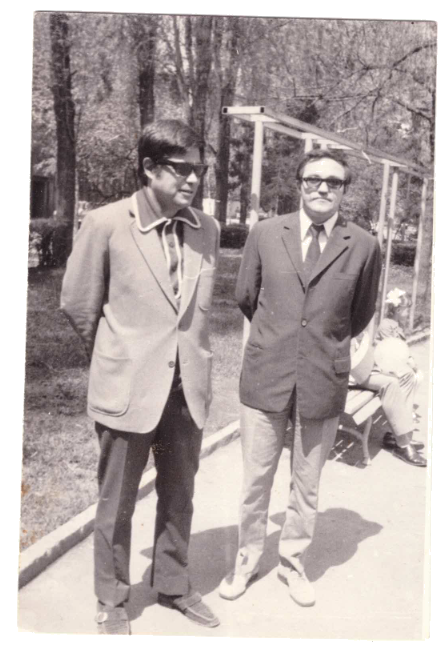7 months in the Belene camp
Offence: an attempt to escape from Bulgaria

I am an optimist by nature and I sought to find something useful for myself from every situation. I thought that I had the rare opportunity to observe how different human types react in extreme circumstances.
Todor Anastasov was born on September 23, 1932 in Pleven. His father was an officer in the Corps of Engineers. At the time of the September 9, 1944, events his father had already been promoted to the rank of lieutenant-colonel, and later he became a colonel. In 1946, however, he was fired, with the right to a pension revoked, due to conflicts with the political commander of the regiment.
In 1948 Todor’s family was forcibly resettled to the town of Botevgrad where Todor continued his high school education in conditions of extreme poverty. Due to the family’s circumstances he had to help with agricultural work, while his mother taught foreign languages and his father, after developing tuberculosis, worked in a local cotton combing workshop before retiring due to illness.
Living in these harsh circumstances, the family decided to seek refuge outside Bulgaria. In August 1951 they left for the village of Sitovo in the Rhodope Mountains, but due to bad weather and the hesitation of their guide, their escape attempt failed.
Todor was well-received at school because he helped his classmates with mathematics. In spite of graduating with top marks, he was denied the opportunity to sit the university entrance exams three times. After these setbacks, he enrolled in a course for microbiological laboratory technicians at the Medical Academy.
In November 1951, together with two friends of his, he made an unsuccessful attempt to escape to Greece, but one of them became ill and the trio walked back. One of his companions was later arrested, and during a search in his flat a diary describing their escape plan was discovered. Todor was detained for fifty-one days and was subjected to psychological pressure during the investigation.
He was sent to the Belene camp without a sentence for his involvement in the escape attempt and spent seven months and eight days there, until the camp was closed following Stalin’s death in 1953. He developed dry pleurisy in the camp and befriended Nikola Daskalov and Yordan Achkov, who remained lifelong friends.
… State security seemed to many people like some mythical monster that can do anything and against which you are completely helpless. For many people, that's how things looked.
After his release from Belene, he was able to complete a degree in physics in 1960. His professional journey began as a teacher in the town of Pernik where he met the former member of the Cultural Committee of the Belene camp, Agayn, whose son he taught.
Throughout his life Todor was dogged by troubles connected to his past. After his time teaching he began working in the laboratory of the Copper Factory in Sofia. In 1963, he joined the Institute of Electrical Industry at the Bulgarian Academy of Sciences, thanks to the patronage of Professor Nikola Belopitov, who had known Todor’s father (having testified in his defense during the trials against General Zaimov). There, Todor managed to become a research associate—an arrangement of "mutual benefit”. After Belopitov passed away, Todor transferred to the Institute for Metal Ceramics. While the professor was alive, Todor had opportunities for work-related trips to Berlin and Moscow. However, after Belopitov’s death in 1973 Todor was denied a work trip to Leipzig.
After the fall of the totalitarian regime, Todor Anastasov became the chairperson of the Union of the Repressed by Communism in Bulgaria. He passed away in late December 2023 at the age of 91.
My investigating officer told me this: “Listen, we have created the laws in such a way that for one and the same thing we can sentence someone to ten years, two years, one year, or we may let him go. It depends on how willing he is to cooperate with us.”


4 years and 4 months in labor camps
Offense: anarchist
9 months under arrest and in a camp
Offense: son of a provincial governor in the Kingdom of Bulgaria
42 days in the Sunny Beach camp near Lovech
Offense: "hooligan", son of a member of the opposition
9 months under arrest and in a camp
Offense: an attempt to escape from Bulgaria
2.5 years under arrest and in a camp
Offense: participant in the anti-communist resistance
3 years under arrest, in a camp and prisons Offense: Agrarian, member of the opposition
3 years and 1 month under arrest and in and political prison
Offense: participant in the anti-communist resistance
In 1961, Zheko was sentenced to death for resistance to the communist authorities. Subsequently, his sentence was changed to lengthy imprisonment.
In 1964, Zheko Stoyanov received an amnesty and was released from the Stara Zagora prison. In order to earn his living, he did hard manual labor, working as a porter, a painter on construction sites, and a miner. For twenty-two years he worked in underground mines.
After the democratic transition of 1989, Zheko Stoyanov entered politics and in 1997 he was elected a member of parliament for the United Democratic Forces. At the age of sixty, he completed a degree in economics.
2 years and 8 months under arrest and in political prison
Offense: dissemination of anti-communist leaflets
After 1958, Alfred was granted the right to travel to Bulgaria, where he spent his summer holidays. There he got to know the new reality of the country and met other like-minded individuals who were dissatisfied with the regime and with whom, in 1968, he distributed printed leaflets against the Communist Party.
Arrested on August 28, 1968, for the distribution of these leaflets, Alfred was sentenced as a spy to fifteen years in prison, of which he served three in the Stara Zagora prison. Following diplomatic pressure, he was released on April 30, 1971, and left Bulgaria. He later returned to illegally take his beloved out of the country, succeeding through a complex and risky plan.
After settling in France, Alfred actively collaborated with groups fighting for human rights in Bulgaria and helped illegally take other political prisoners out of the country. He currently lives in Sofia.
Four years in camps and in forced resettlement
Offence: disagreement with the change of Turkish names to Bulgarian




